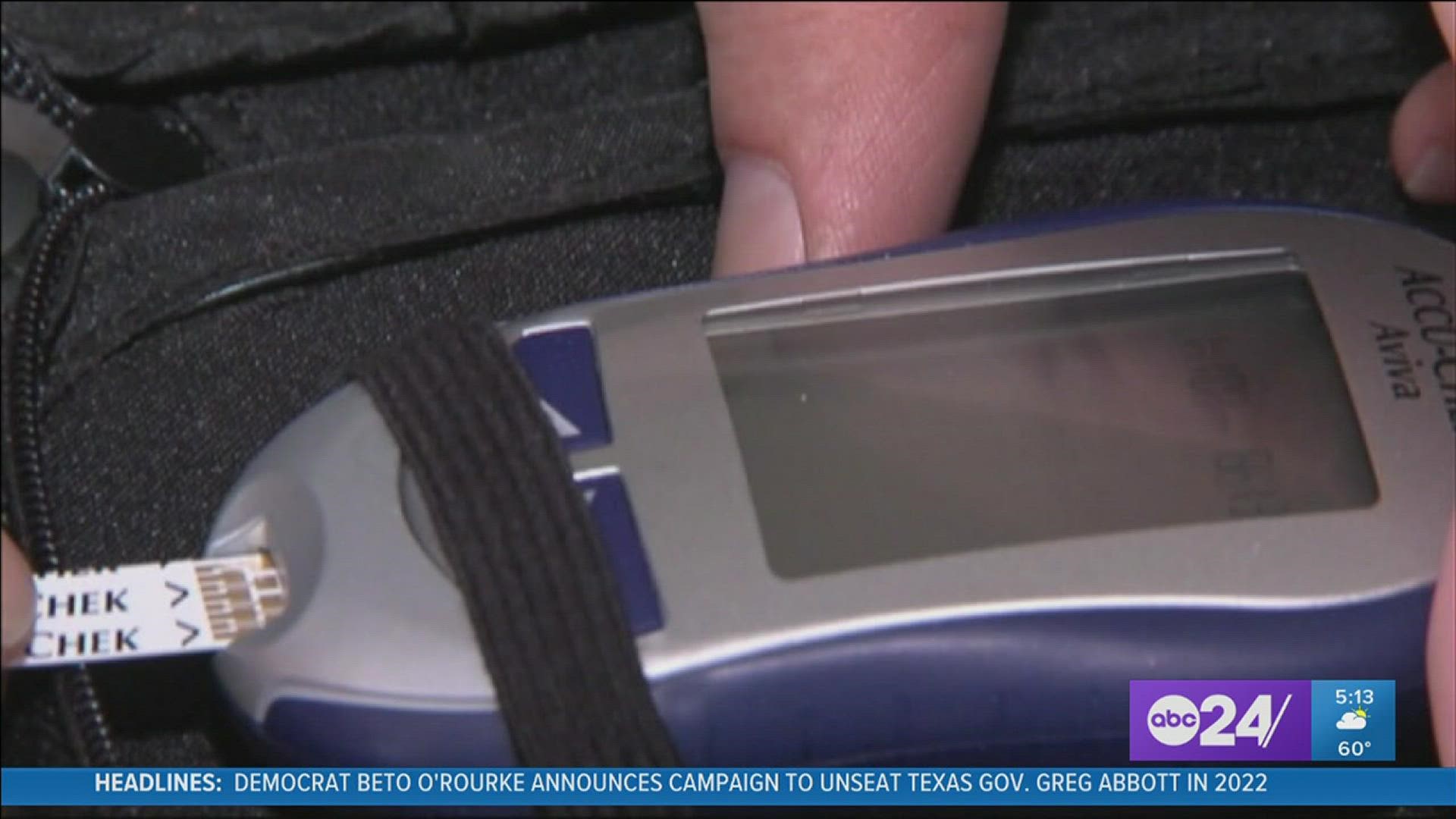MEMPHIS, Tenn. — According to the CDC in 2020, 34.2 million U.S. adults have diabetes. The U.S. Department of Health and Human Services, reports Black adults are 60% more likely than whites to be diagnosed with diabetes.
Diabetes is a condition in which your body doesn’t make or use enough insulin which allows the body to use sugar in the blood as energy. There are two types. Type 1 is a chronic condition in which the pancreas producers little or no insulin by itself. Type 2 occurs when the body becomes resistant to insulin or doesn’t make enough insulin.
Before developing type 2 diabetes, most people have prediabetes; their blood sugar is higher than normal but not high enough yet for a diabetes diagnosis. Prediabetes is really common—more than 88 million US adults have it, though more than 84% of them don’t know they do. According to the CDC, prediabetes can be reversed.
You can take this 1-minute prediabetes risk test to see where you stand.
Lashoyne Brown is a type 2 diabetic. She was diagnosed about 15 years ago at just 27 years old. Brown said she went years without knowing she had it. She had symptoms like dehydration, headaches, sore limbs, and blurred vision.
"After a while, I just got used to the pain. I had an excuse for it and after a while you know I forgot what it was like to feel normal," Brown said.
Nykkia Sellers is a nurse practitioner and a diabetes care and education specialist in Shelby County. She said what happened to Brown is common, especially in the Black Community because decreased access to healthcare and affordable healthcare plays a factor. Sellers said to prevent going undiagnosed, people should at least get checked annually.
While there's no cure for diabetes, it can go into remission with a change in diet and exercise. A few years after Brown was diagnosed with diabetes, doctors found a mass on her pancreas. She would have needed surgery that would have removed half her pancreas.
Brown said the mass went away on its own after two years of staying dedicated to her doctor's health plan. She said during the time, she lost more than 90 pounds and has been in remission ever since.
"This is life-altering. If you don't take control I mean diabetes will kill you so to save your life, change your diet, exercise and with dedication, you may not have to worry about your numbers being high," Brown said.

